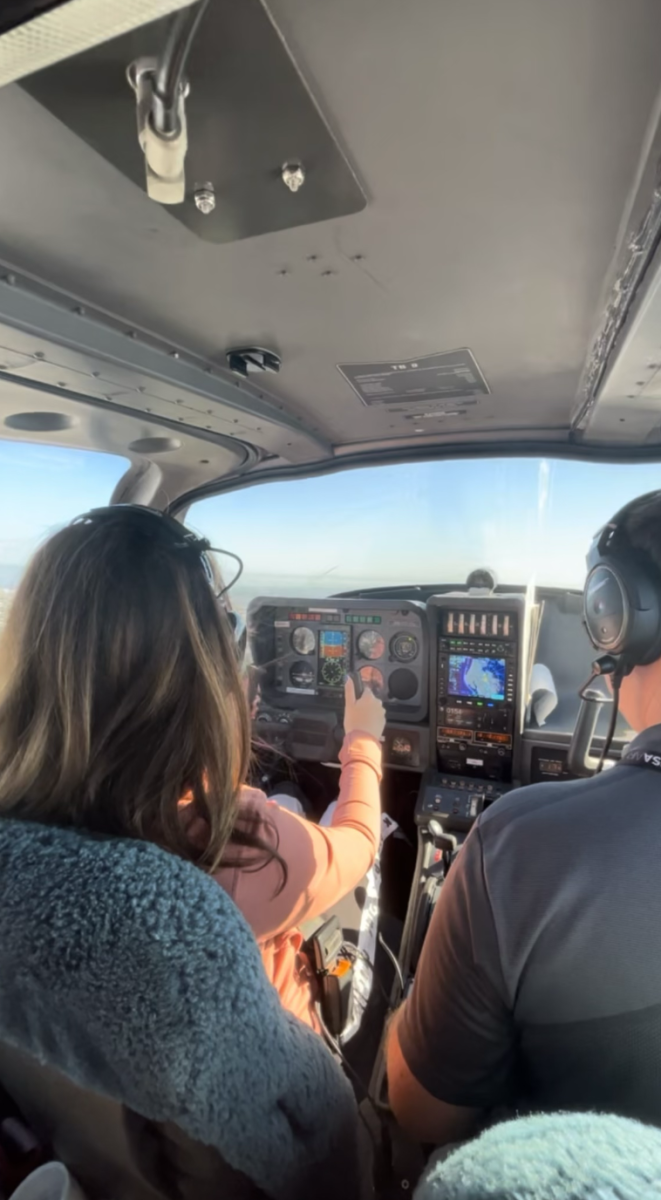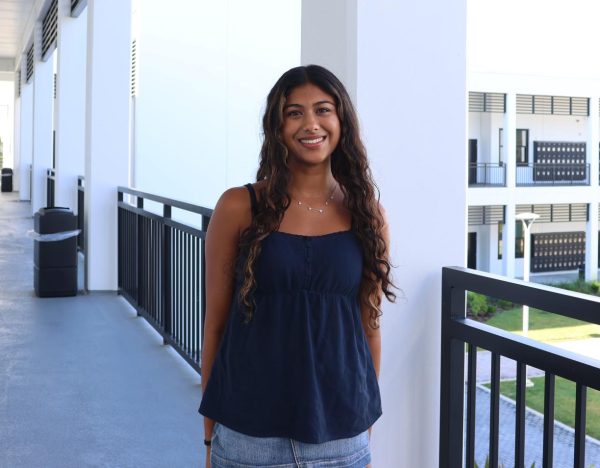Flying planes while being in high school sounds unreal to most students, but it is possible at Robinson. The aerospace program has always been exclusive to Robinson and draws in new students every year.
Sponsored by Embry-Riddle Aeronautical University in Daytona Beach, students take dual enrollment courses as Embry-Riddle students during their junior and senior years of high school. With two classes per semester for three college credits each, students get a total of 12 college credits over two years completely free. Most importantly, students are offered an opportunity to earn a pilot’s license. The written exam required for the license can be taken in school and allows students to avoid taking it later in the course.
“Getting your pilot’s license means you have to learn a large amount of material, do a bunch of bookwork, and get about twenty-five hours of flying by yourself. Mostly it requires a lot of dedication,” said John Strickland (’25), a current student in the aerospace program.
The program helps bridge the gap from textbook knowledge to real-world applications making the field a realistic career option for students. With the world increasingly relying on new forms of technology and transportation, these students plan to play a pivotal role in the scientific world and have unlimited potential for change.
“Students mostly don’t understand the capability and power they have. In just sophomore year they start winning scholarships, scholarships for summer programs, for flight school, for universities. They can build on what they’re doing here at Robinson and if they’re dedicated and put in the work then they have all these opportunities available to them and they don’t even have to wait until college,” RHS Aerospace Instructor Doyle Orr said. “My goal is to get students to realize their full potential. Whether or not they continue to have a future in aerospace I want them to figure out how they can be the best in whatever they do.”
Not to mention, it serves as a breeding ground for innovation and allows students to explore a wide range of topics from engineering to forces of flight to formations of weather. The curriculum is heavily described to be a problem-solving class, forcing students to actively seek answers and broaden their perspectives. Through Federal Aviation Administration (FAA) materials, projects and simulations, such as a Microsoft flight simulator, students are able to learn to analyze complex situations, make informed decisions and collaborate effectively.
“My top choice now is Embry-Riddle, a private school I never thought would be attainable. Thanks to the aerospace program’s dual enrollment, my confidence has soared,” said Olivia Sovik (’25), a student with a pilot’s license.
While it can be commonly thought that all aerospace students want to be pilots, in actuality ,there is a large field of professions for students to choose from. Satellite engineers, aerospace technicians and air traffic controllers are just a few examples.
“I want to become an aircraft mechanic, you basically need to go to trade school for eleven months, and from there you can start working professionally. You get to fix planes along with testing them to ensure they’re flying properly. I really want to go to the National Aviation Academy in Clearwater and just applied. I wouldn’t want to do any of this if I hadn’t done aerospace though,” Jameel James (’24) said.
Orr sheds light on the opportunities and scholarships that are achievable inspires students to work hard in the aerospace program and really find a place for themselves in the future.
“Joining aerospace with Dr. Orr helped me discover that I could be an air force pilot or at least a drone pilot. I want to try to do something in the world, I don’t just want a normal job, I actually want to try to do something with my life,” said Kyle Perkins (’25), who has been in the program for two years.
Aerospace transforms aimless adrift kids into students with a genuine passion for science along with invaluable skills for the job market and every aspect of life.
“This program has made me into a better student, and a more profound thinker, and has given me a sense of community. I love aerospace so much it’s kind of crazy and I know it shaped who I am today,” Sovik said.


